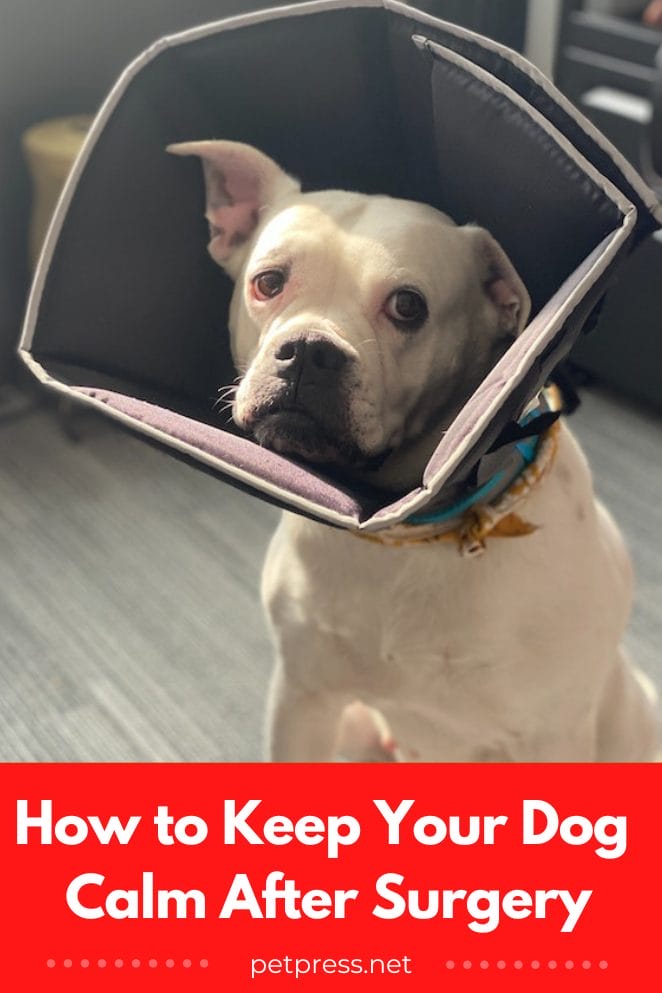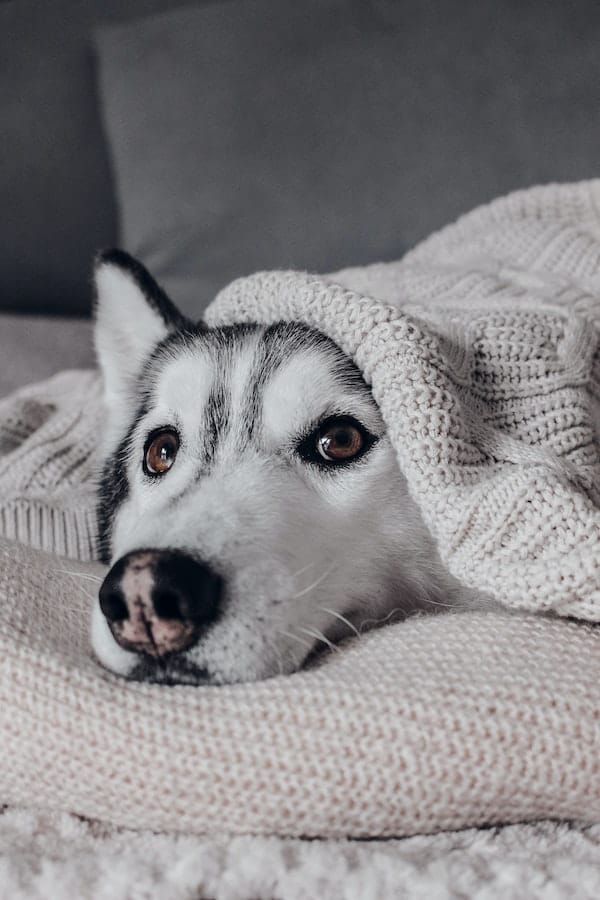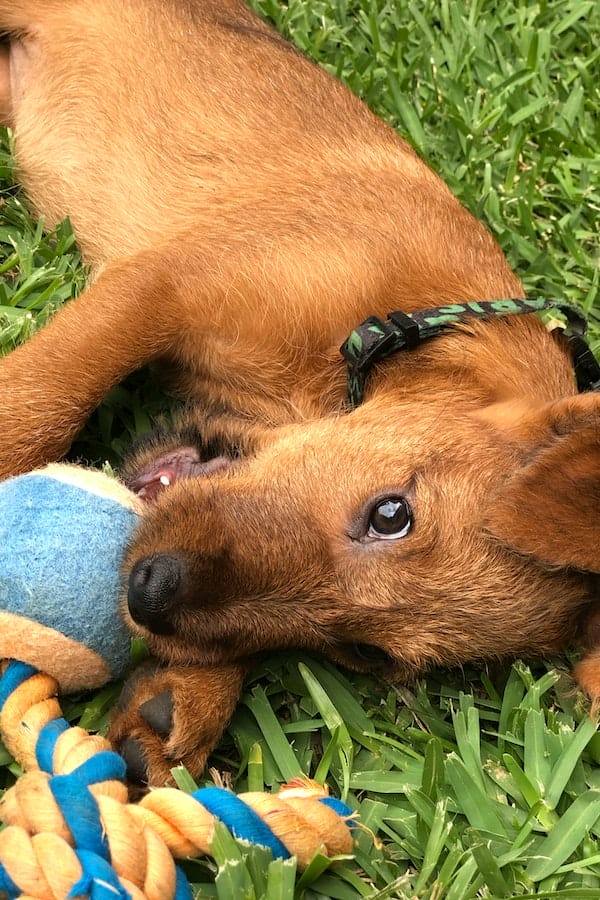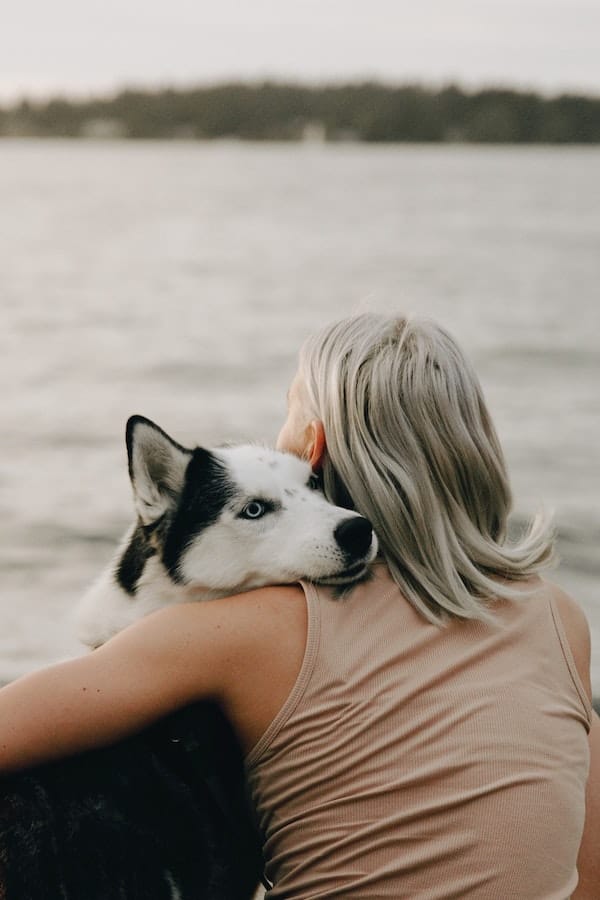
Vet visits are an unavoidable part of a pup’s life, and sometimes surgery is required. But post-surgery care doesn’t have to be a downer.
So if you are wondering how to keep your pup calm after surgery, this article is for you!
How to keep your dog calm after surgery
While some dogs are naturally calm in nature, after surgery, the unfamiliar sights and sounds of a vet clinic may make them anxious.
To ensure your pup’s optimal recovery, it’s important to keep them as relaxed as possible. Here are some tips on how to keep your dog calm after surgery:
Tip #1. Keeping them comfortable
Ensure that your pet has a warm and comfortable place to rest after surgery.
This could be their usual bed or somewhere new for them to explore, as long as it’s away from any areas of the house where other pets may jump or play.
Tip #2. Restrict exercise
After an operation, your dog needs plenty of rest and relaxation so limit the amount of physical activity they get in the days following surgery. A gentle game of fetch should do the trick!
Keep an eye on how much energy your pup is expending and only let them indulge in light activities until they are fully recovered.
Tip #3. Create a calming environment

Keep noise levels to a minimum around your dog post-op and if possible, find somewhere quiet for them to rest and relax.
A low-traffic area in the home is ideal; this could be the living room or even a bedroom so long as there are no loud distractions that may cause your pup to become too excited.
Tip #4. Limit bath time
Wait at least a week after surgery before giving your pet a full bath as this can strain their still healing body.
Instead, opt for spot cleaning of any dirt or mess they may get on themselves throughout their recovery period.
Tip #5. Offer plenty of water
Make sure you keep your pup hydrated during their road to health!
Water helps the body heal quicker and with less discomfort which is why it’s important to ensure your dog has an ample supply of fresh water throughout the day.
Tip #6. Monitor their food intake
After surgery, you must monitor how much your pup eats as overeating can be bad for them and can put additional strain on their body.
To ensure a speedy recovery, feed them small portions several times a day instead of one large meal.
Tip #7. Show love and affection
Dogs respond well to positive reinforcement, so make sure that you lavish plenty of attention on your pooch during their postoperative period!
This could include gentle petting or playing with toys; whatever makes them happiest while they recover.
One of the best ways to keep your dog calm is by spending quality time with them in the comfort of their own home.
Read a book, watch a movie, or cuddle up on the couch; whatever you do make sure it’s calming for both you and your pet!
Tip #8. Keep them away from other pets
While you may want to introduce your newly operated pet to other animals, it’s important not to do so in the days following surgery.
The excitement of meeting others could be too much for their body and cause unnecessary stress during their recovery period.
Tip #9. Invest in toys
To help pass the time while they recover, give your pup some new toys to play with! This will not only keep them entertained but also distracted from any pain or discomfort they may be feeling due to surgery.
Tip #10. Seek professional advice
If at any point post-surgery, you feel like your pooch isn’t recovering as well as expected then seek out professional advice from a vet immediately.
This could prevent further complications down the road and ensure that your pet is as healthy as possible!
How do you stimulate a dog’s brain after surgery?

If your pup just had surgery, it’s important to keep their brain active as they heal! Here are 5 interactive ways to stimulate their mental health:
1. Sniffing game
This is a great way to stimulate your four-legged friend’s nose and mind after surgery. Take some treats and hide them around the house for your dog to find.
As they get better at sniffing out the treats, you can increase the difficulty level by hiding them in harder places or under blankets or furniture.
2. Puzzle toys
Once your pup is feeling better, puzzle toys are an excellent activity you can use to exercise their brains while having fun.
Fill the toy with treats and watch your pup figure out how to get them out – it’s a great way for them to work their puzzling skills!
3. Memory game
This game is all about testing your dog’s ability to remember information. Show him three objects, such as a ball, a bone, and a toy, and then take one away while he watches.
Ask him which one you took away and reward him when he guesses correctly. You can increase the difficulty by adding more objects.
4. Give a view
Place your pup in front of a window with their favorite toys. Watching the world go by will help keep them stimulated and occupied while they heal up.
5. Take short walks
Once your pup is feeling better, you can start taking short walks around the block. This will help get their muscles moving and give them plenty of new sights and smells to explore!
Conclusion

Keeping your pup calm after surgery is no easy feat, but with the right amount of care and attention, you can ensure that their recovery process goes as smoothly as possible.
Make sure to take time for yourself during this period, too – it’s just as important!
With patience and understanding, you and your pup will be back to full health in no time.


GIPHY App Key not set. Please check settings